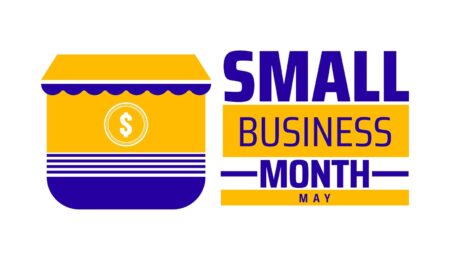Everybody has an opinion and if you listen to all of them in making your career or even entrepreneurial decisions, you will have followed the ‘wisdom’ of the crowd. Which is to say, the average of everyone’s thinking. Ultimately that gets you into safe, risk-free careers or startups that have a likelihood of failing. Which you may or may not enjoy. And clearly, people are not enjoying their careers.
It’s not a good thing that one of the latest Gen Z job satisfaction studies published in December of 2024, showed that Gen Z had the lowest job satisfaction and highest burnout rate among all generations of workers. So, you followed the wisdom of the crowd, took that safe and secure job and look where it got you. Time for you to own your destiny. What do you do next?
Two things. Start thinking for yourself and as Steve Jobs would say, ‘think different.’ This is where carving your own path comes in, and instead of moving with the crowd, you need to be a ‘contrarian’ and potentially start thinking like an entrepreneur who questions the status quo and moves to change or disrupt things. Especially as it relates to your career or a startup.
So, what is contrarian thinking? Contrarian thinking defies ‘crowd think’ and uses knowledge-based thinking and curiosity to question widely accepted beliefs. You need to challenge prevailing norms. You need a store to sell books. No, you don’t. Amazon. You need vehicles to create a taxi company. No, you don’t. Uber. Need to build a hotel to rent rooms? No, you don’t. Airbnb. So, what do you do?
You need to start paying attention to trends and identifying market gaps and untapped opportunities that others may overlook. In other words, you need to move away from crowd thinking. Why? Because historically, most people don’t like change, disruption or risk as it upsets the status quo. There is safety in the crowd. Also, boredom, low job satisfaction and the beginnings of an unfulfilled career.
Read Peter Thiel’s book, Zero to One and you will better understand why contrarian thinking is not just a choice but its critical if you want to either carve out an amazing career or create a unique startup.
Here are several thoughts on how you can begin to cultivate a more contrarian mindset:
Cultivate thinking differently. First, think for yourself and quit following the crowd. Say ‘why ‘ more often and do your own research. Contrarian people evaluate assumptions in their industry and are not afraid to challenge those existing assumptions. You don’t ask yourself ‘how much market share can we get’; you ask yourself, how can we build something so innovative, we can capture most of the market.
Champion your own creativity. We were all born with childlike curiosity and creativity. Where did it go? It’s still there inside of you, just hidden. It’s time to wake it up and nurture your creativity like a muscle. How? Adopt a growth, mindset which says you can learn what you need to be successful. Read more. Talk to people you have nothing in common with. Mingle with actual customers and see through their eyes. When you travel, pay attention to what people are doing. Talk to ten experts in their own fields and see what they see. See if you can “connect some dots” of information to show you what’s coming next.
Be willing to take risks. Why are people in general so afraid to try new things that could be awesome but might potentially fail? Fear. Well, what are you afraid of? What were you bon to do? The best things in life, whatever they might be, are not coming to you. You need to go meet them. That means, you need to start taking risks. Not foolish risks where failure potential is too high but smaller risks like meeting with people, taking the job in a growing company/industry or field, one with a mission or purpose that aligns with you. Or perhaps test that startup as a side gig to see if it has merit. But you do need to do something you actually care about.
Disruption over conforming. If a leader in an industry goes left, you investigate right. If another company says go up, you look down. No one ever got anywhere by just blindly following the herd. Most people are afraid of taking on leaders. But, if you change your point of view, find out what ‘secrets’ customers have or products or services they are tolerating, you might just be the next Netflix taking on a Blockbuster. It’s not about just wanting to disrupt an industry leader; it’s about listening to customers and giving them exactly what they need. No one who does something really well, actually knows that they will be a $1.84 trillion company one day. That is Google today. However, in their early days, they almost sold themselves to Yahoo for $1 billion dollars. Good thing they didn’t.
Steal from experts. Critical thinking requires lots of knowledge and experience. But what if you don’t have the experience? Then you go steal it. How? By meeting with experts, whether they are industry, product, service, technical, etc. They have two things you might need. More knowledge and most definitely experience. If you meet with ten experts and gather their knowledge, insights and experiences, you are the one person in the center of that hub who now has all that information. This could save you from making critical mistakes or give you the insight you need to make your own decisions.
Avoid competition. Market competition breeds imitation. You don’t want that, as everyone just fights for the same market share and ultimately, it’s a race to the bottom. Contrarian thinkers and entrepreneurs however, create new business models, products, and services that can potentially disrupt industries. They focus on creativity and innovation over just competing on price, features or scale.
As an example, Steve Jobs built Apple around contrarian principles like design-focused products, closed systems (think amazing operating system software), and customer experience over tech specs and features, defying conventional (crowd) wisdom at the time. This approach has redefined entire industries, set Apple apart, and created fanatically loyal customers willing to pay a premium for their products and services. Airbnb is another example. Rather than competing in the saturated hotel industry, Airbnb pioneered a new model of hospitality where everyday people could monetize their extra living space. This uniqueness has fueled their massive growth. And created a whole new sub-industry.
Read the full article here











